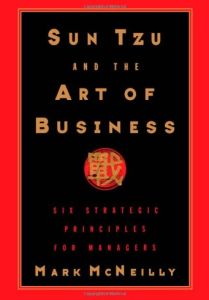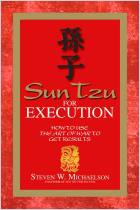Join getAbstract to access the summary!

Join getAbstract to access the summary!
Mark McNeilly
Sun Tzu and the Art of Business
Six Strategic Principles for Managers
Oxford UP, 1996
What's inside?
What can a sage who lived 1,600 years ago tell you about the battlefield that is your business? Only how to minimize casualties, exploit your opponents’ weaknesses and strengthen your own character in the process.
Recommendation
This book takes the metaphor, "business is war" as far is it can possibly go - and then pushes it a little bit farther. The writer, an amateur military historian, draws many examples of strategy and tactics from battlefield applications - none of them Chinese, interestingly enough, considering the inspiration for the book. He establishes indisputably that Sun Tzu’s observations in China, circa 400 BC, would have been equally valid in Imperial Rome or World War II. He falters somewhat when he attempts to apply these principles to business. The author struggles to make the connection and occasionally succeeds, most effectively when discussing price wars and hostile takeovers. If the premise that business is like war is questionable, the idea of using a Chinese military handbook as a business text is unusual enough to be stimulating. getAbstract.com recommends this intriguing book to business strategists and managers.
Summary
About the Author
Mark R. McNeilly is a strategist for IBM, an amateur military historian, and a former officer in the infantry and artillery.



















Comment on this summary